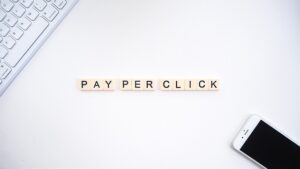In the ever-evolving landscape of digital marketing, Pay-Per-Click (PPC) stands out as a cornerstone technique. At its core, PPC is a form of online advertising where advertisers pay a fee each time their ad is clicked. Rather than gaining organic visitors, you’re buying visits to your site—a concept that can be incredibly lucrative if executed correctly.
PPC’s Unwavering Importance in Digital Marketing
Digital marketing thrives on visibility and engagement. In a digital age where attention is fragmented and scattered across various platforms, PPC is a beacon to direct potential customers straight to your virtual doorstep. When implemented effectively, it can offer an immediate boost in traffic and can be a significant driver for conversions. Think of it as a spotlight in a vast digital auditorium; with PPC, you ensure that the spotlight shines brightly on your brand, product, or service.
The Evolutionary Journey of PPC Strategies
Like every facet of digital marketing, PPC has undergone significant transformations since its inception. Gone are the days when simple keyword stuffing and generic ad copies dominated the scene. Modern PPC campaigns have become far more nuanced, integrating user behavior analytics, sophisticated targeting methods, and intricate bid strategies to maximize ROI.
With this evolution, there’s been a pressing need for marketers to embrace more advanced tactics. As competition grows stiffer, and platforms like Google and Facebook introduce ever-changing algorithms, the stakes for running a successful PPC campaign have risen. To keep up, businesses must be agile, innovative, and equipped with the latest strategies.
Elevating Campaigns with the Right PPC Software
Herein lies the game-changer: the right PPC software. With advanced tools at your fingertips, you can streamline and automate many aspects of your campaigns and unearth previously hidden insights. Modern PPC software harnesses the power of AI, predictive analytics, and comprehensive data tracking, allowing marketers to optimize bids in real time, experiment with dynamic ad content, and target audiences more effectively than ever before. Simply put, it’s akin to giving an artist a more refined brush; the strokes are more precise, and the results more captivating.
Read Also: How PPC Software Boosts Remarketing Efficiency: Optimize Campaigns
In the following sections, we’ll delve deeper into these advanced PPC strategies, illuminating how, with the right software, you can supercharge your digital advertising efforts, ensuring that every click not only counts but also converts.
The Basics of PPC Revisited
Embarking on the vast journey of PPC requires a starting point, and what better place to begin than by revisiting its foundational principles? Regardless of the digital age’s rapid advancements, understanding the roots of PPC ensures a robust framework upon which to build more complex strategies.
Foundational PPC Principles: A Quick Overview
- What is PPC? At its most basic level, Pay-Per-Click (PPC) is a model of Internet marketing wherein advertisers pay a fee every time their advertisement is clicked. It’s a direct method of buying visits to your website, contrasting with earning visits organically.
- Search Ads: These are the ads that appear on search engine results pages (SERPs). When a user enters a query, these sponsored listings might show up above or beside the organic results, depending on the search engine.
- Display Ads: Unlike search ads, display ads appear on websites as banners, sidebar graphics, or interstitial ads. They’re more visual and can be targeted based on user behavior, demographics, or site content.
- Ad Auction: PPC isn’t a flat-rate system. Advertisers must bid on keywords they believe their target audience will type into the search bar. The ads of the highest bidders get the prime spots, but the auction also takes into account ad quality, relevance, and other factors.
- Quality Score: This is a metric used by search engines to gauge the relevance and quality of your ads and keywords. A higher Quality Score can lead to more favorable ad placements and lower costs.
- Cost-Per-Click (CPC): This is the amount you pay each time someone clicks on your ad. It’s determined by the bid you set and other competing bids, among other factors.
- Conversion Rate: It’s not just about clicks. The conversion rate tells you how many click-throughs actually resulted in a desired action, such as a purchase or sign-up.
Why Grasping the Basics is Crucial
Before you start painting with broad strokes or diving deep into the ocean of advanced PPC tactics, you need to understand your palette and tools. The same principle applies here. Knowing the fundamental elements of PPC provides several advantages:
- Solid Foundation: Mastery of the basics ensures a solid foundation. When faced with advanced challenges, you’ll have a touchstone to return to, ensuring you don’t lose sight of your core objectives.
- Strategic Evolution: Understanding the origins and core mechanics of PPC allows for more strategic adaptations. Advanced tactics are often rooted in basic principles but refined or twisted in innovative ways.
- Avoiding Common Mistakes: A deep understanding of the basics can help you sidestep common pitfalls. Whether it’s avoiding negative keywords or optimizing for Quality Score, these foundational lessons can save time, money, and potential headaches.
In conclusion, while the allure of advanced PPC strategies is strong, a return to basics now and then is indispensable. It’s like revisiting the training grounds to ensure that, as we evolve and adapt, our foundational knowledge remains unshaken.
The Limitations of Traditional PPC Approaches
The digital marketing landscape, much like the world of technology, is in a constant state of evolution. What was revolutionary yesterday may become obsolete tomorrow. The realm of Pay-Per-Click (PPC) advertising is no exception. While the foundational principles of PPC provide a necessary framework, relying solely on traditional approaches can hamper the potential of modern campaigns.
Common Challenges of Traditional PPC Strategies
- Over-reliance on Broad Keywords: In the past, PPC campaigns were often built around a few broad keywords. While this might generate a large volume of traffic, it doesn’t guarantee quality or relevance. Today’s consumers expect personalization and specificity, and generic keywords often miss the mark.
- Static Ad Copies: Earlier PPC ads were static, one-size-fits-all copies. In today’s dynamic world, these can appear bland and might not resonate with the diverse needs and preferences of different audience segments.
- Lack of Dynamic Pricing: Traditional bidding strategies were often rigid. Without real-time adjustments, marketers might overpay for underperforming ads or miss opportunities with potential high-performers.
- Ignoring Multi-device Users: Older strategies didn’t account for the explosion of mobile and tablet usage. Campaigns not optimized across devices can lead to a fragmented and unsatisfactory user experience.
- Minimal Engagement Metrics: Traditional PPC focused predominantly on clicks, often sidelining other crucial engagement metrics like time spent on site, pages visited, or bounce rate.
The Pressing Need for Advanced PPC Software
PPC’s potential doesn’t end with basic keyword tracking and rudimentary analytics. Modern digital marketers need a holistic view of their campaigns, one that’s only possible with advanced software.
- Beyond Keyword Tracking: While keywords remain central to PPC, today’s campaigns require an understanding of semantic search, user intent, and long-tail keywords. Modern software offers insights into not just which keywords drive traffic, but which ones lead to conversions and foster loyalty.
- Enhanced Analytics: Today’s PPC strategies need to consider a myriad of factors, from demographic data and device usage to user behavior patterns and seasonal trends. Advanced analytics provides a deeper dive, allowing for more precise targeting and better ROI.
- Integration Capabilities: The best PPC campaigns don’t operate in a vacuum. They integrate seamlessly with other digital marketing efforts, from SEO to content marketing. Advanced software facilitates this integration, offering a unified view of a brand’s digital footprint.
- Automation and AI: Modern PPC software leverages the power of artificial intelligence and machine learning. This allows for real-time bid adjustments, predictive modeling, and even automated ad creation tailored to individual user preferences.
In wrapping up, while traditional PPC strategies laid the groundwork for online advertising, the complexities of today’s digital landscape necessitate a shift. Modern challenges demand modern solutions. As PPC continues its evolutionary journey, it’s essential for marketers to harness the capabilities of advanced software, ensuring that their campaigns remain not just competitive, but trailblazing.
Essential Features in Advanced PPC Software
In the fast-paced world of digital advertising, tools that keep marketers at the forefront of innovation are paramount. Advanced PPC software has become a must-have, evolving from mere tracking tools to comprehensive platforms that address every facet of a campaign. But what features differentiate basic PPC tools from advanced ones? Let’s delve into the critical components that modern PPC software should possess.
1. Machine Learning and AI Integration
- Predictive Analytics: By leveraging AI, advanced PPC tools can forecast future trends based on historical data. This predictive capability enables marketers to stay a step ahead, optimizing campaigns for future success.
- Automated Insights: Machine learning algorithms sift through vast amounts of data to provide actionable insights, highlighting potential areas of improvement and identifying emerging opportunities.
- Dynamic Content Creation: AI can now aid in creating ad copies tailored to individual user preferences and behaviors, ensuring maximum resonance and relevance.
2. Advanced Tracking and Analytics Capabilities
- Holistic Data View: Beyond basic click-through rates, advanced software offers insights into user behavior, conversion pathways, and multi-channel performance.
- Real-time Reporting: The digital landscape changes by the second. Modern tools provide real-time analytics, allowing for immediate tweaks and adjustments.
- Audience Segmentation: Dive deep into demographics, interests, and behaviors to segment your audience and tailor campaigns to specific groups.
3. Bid Management and Automation
- Dynamic Bid Adjustments: Instead of static bids, advanced platforms adjust bids in real time based on performance metrics and predefined rules.
- Budget Optimization: Advanced tools ensure that your budget is allocated efficiently, prioritizing high-performing campaigns and reducing wastage.
- Geo-targeting and Dayparting: Optimize bids based on specific geographic locations and times of day, harnessing peak engagement periods.
4. Ad Split-Testing (A/B Testing)
- Automated Test Creation: Easily set up control and variant ads to test multiple elements, from headlines to CTA buttons.
- Performance Analysis: Get clear insights on which version performs better and why, allowing for continuous optimization.
- Iterative Testing: Continuously refine and test new variations, ensuring ads stay fresh and effective.
5. Landing Page Optimization Tools
- Heatmaps: Understand where users are focusing on your landing page, identifying areas of interest and potential drop-off points.
- Conversion Rate Optimization: Advanced tools provide insights and suggestions to tweak landing pages for maximum conversions.
- Responsive Testing: Ensure landing pages are optimized for all devices, from desktops to mobile phones.
6. Integration with Other Marketing Tools and Platforms
- Seamless Syncing: Integrate PPC campaigns with email marketing, SEO tools, CRM systems, and more for a unified marketing approach.
- Data Sharing: Share insights and data across platforms, enabling cross-channel optimization and a cohesive brand narrative.
- Automated Workflows: Create automated workflows between tools, streamlining operations and reducing manual intervention.
Advanced PPC Strategies Enhanced by Software
The adage “work smarter, not harder” has never been more apt than in today’s complex digital advertising ecosystem. As marketers strive to outperform competitors and engage audiences, harnessing the capabilities of advanced PPC software becomes pivotal. Let’s explore how state-of-the-art software can elevate and refine core PPC strategies.
a. Data-driven Keyword Research and Optimization
- Using Predictive Analytics to Forecast Keyword Performance:
- Modern PPC software isn’t merely reactive; it’s proactive. Through predictive analytics, these tools assess historical data to forecast how certain keywords will perform in the future. This allows marketers to capitalize on emerging trends and reduce efforts on potentially underperforming keywords.
- Discovering Long-Tail Keywords and Negative Keywords Automatically:
- Long-Tail Keywords: Instead of focusing solely on broad keywords, advanced tools can mine search data to uncover long-tail keywords—more specific phrases that, while lower in search volume, often convert better due to their specificity.
- Negative Keywords: To ensure your ads only appear in the most relevant searches, modern software can automatically identify and filter out negative keywords. These are terms that, if triggered, are unlikely to result in a conversion, ensuring that you aren’t paying for irrelevant clicks.
b. Automated Bid Management
- Setting Up Bid Rules and Criteria:
- Advanced PPC platforms allow for the creation of bespoke bid rules based on diverse criteria, from ad performance metrics to specific audience behaviors. By defining these rules, marketers can automate their bid strategy, ensuring optimal spending.
- Real-Time Bid Adjustments to Maximize ROI:
- Gone are the days of setting a bid and hoping for the best. Modern tools can make real-time bid adjustments, dynamically adapting to the auction environment. This ensures that marketers remain competitive, optimizing for the best ad placements at the most cost-effective prices.
c. Targeted Ad Scheduling and Dayparting
- Analyzing Peak Performance Times and Adjusting Ad Schedules:
- Not all hours are created equal in the world of PPC. Advanced software provides granular insights into when ads perform best. By analyzing these peak performance periods, marketers can strategically schedule ads to run when they’re most likely to generate clicks and conversions.
- Aligning with Audience Behaviors and Trends:
- Beyond just time-based insights, modern tools allow for a deeper understanding of audience behaviors. This could mean discovering that a certain demographic is more active during lunch breaks or that weekend evenings see a surge in activity from a specific user group. Armed with this data, campaigns can be tailored to align with these trends, ensuring ads resonate with the right audience at the right time.
d. Dynamic Ad Creation and Personalization
- Using AI-driven Tools to Create Ads that Adjust in Real-time Based on User Data:
- Artificial Intelligence (AI) isn’t just a buzzword in the realm of PPC; it’s a game-changer. Modern PPC software harnesses the power of AI to analyze vast amounts of user data in real time, adjusting ad content on the fly to ensure maximum relevance. Whether it’s tweaking the ad copy or swapping out visuals, these dynamic changes ensure that the ad resonates with the viewer’s current context and intent.
- Ensuring Higher Relevance and Better Click-through Rates:
- Personalized ads don’t just capture attention; they command action. By tailoring ads to individual user profiles, preferences, and behaviors, the relevance quotient skyrockets. This heightened relevance translates directly to improved click-through rates, making your ad budget work harder and smarter.
e. Audience Segmentation and Remarketing
- Defining and Targeting Micro-segments for Precision Marketing:
- Broad audience segments can dilute the effectiveness of a campaign. Advanced PPC tools empower marketers to break down larger audience groups into micro-segments based on nuanced criteria—be it specific behaviors, interests, or purchase histories. This granularity ensures that campaigns are hyper-targeted, resulting in better engagement and conversion.
- Creating Specialized Retargeting Campaigns for Different Audience Segments:
- Remarketing isn’t just about reaching those who didn’t convert. It’s about reconnecting with precision. Advanced PPC software allows for the creation of specialized retargeting campaigns tailored to different audience segments. This means that a user who abandoned a cart might see a different retargeted ad compared to someone who simply browsed a product category. Such specificity enhances the chances of re-engagement and eventual conversion.
f. Landing Page Optimization and Testing
- Analyzing Landing Page Performance in Tandem with Ad Performance:
- The journey doesn’t end with an ad click. The landing page experience is crucial in determining whether that click translates to conversion. The advanced software offers integrated analytics that examines landing page performance in conjunction with ad metrics. This holistic view ensures that there’s a seamless transition from the ad to the landing page, enhancing the user experience and conversion potential.
- Automated A/B Testing for Different Landing Page Versions:
- Guesswork has no place in modern digital marketing. Advanced PPC platforms come equipped with tools that automate the A/B testing process. By simultaneously testing different landing page versions—from design layouts to call-to-action buttons—marketers gain data-driven insights into what truly resonates with their audience. This continuous testing and optimization cycle ensures that landing pages remain effective and relevant over time.
Conclusion
The landscape of digital advertising is in constant flux. Strategies that were once the gold standard can easily become outdated, and tactics that once guaranteed success might now only yield mediocre results. That’s why it’s crucial to arm yourself with cutting-edge tools designed for the challenges of today and the opportunities of tomorrow.
Data Bid Machine’s Advanced PPC software and analytics is your trusted companion in this journey. Our platform is built upon the very principles and advanced strategies we’ve discussed in this article. By leveraging AI, predictive analytics, machine learning, and a suite of comprehensive tools, it’s designed to optimize every facet of your PPC campaigns. Whether it’s keyword optimization, bid management, or landing page testing, our software ensures that you’re always a step ahead of the competition.
But don’t just take our word for it. Witness the power and potential of our platform firsthand by booking a demo. Experience the seamless integration, the intuitive design, and the plethora of features aimed at driving success.
Remember, in the world of PPC marketing, success isn’t just about visibility; it’s about meaningful engagement, genuine conversions, and tangible ROI. With Data Bid Machine’s advanced tools, you’re not just setting up campaigns; you’re laying the foundation for sustained growth and unmatched ROI.
So, if you’re ready to revolutionize your PPC efforts and elevate your digital marketing game, contact us for more information. The future of PPC is here, and with the right tools and approach, your potential for success is limitless.




